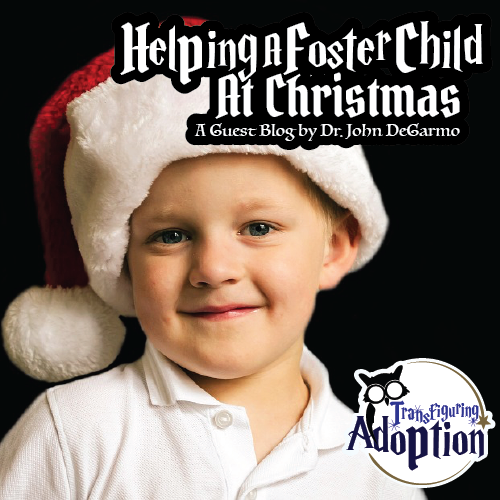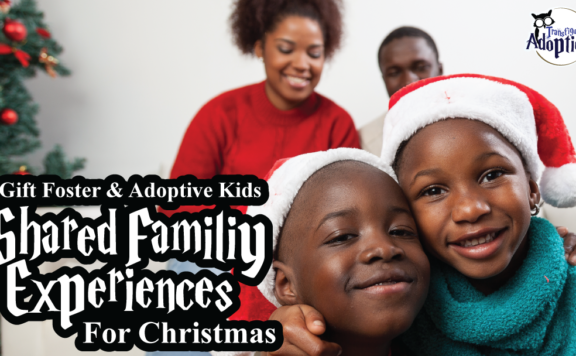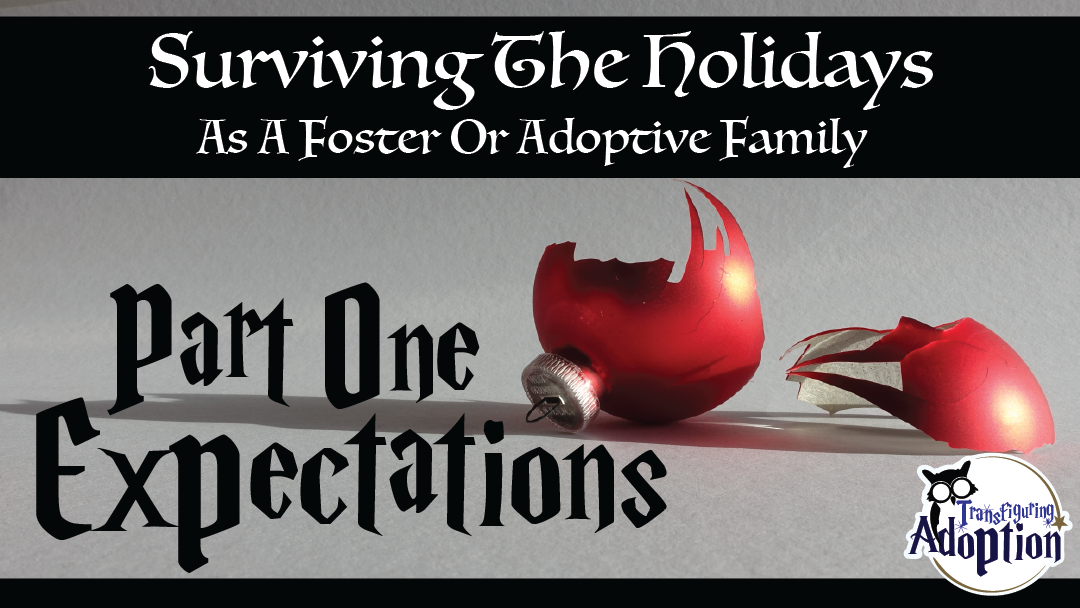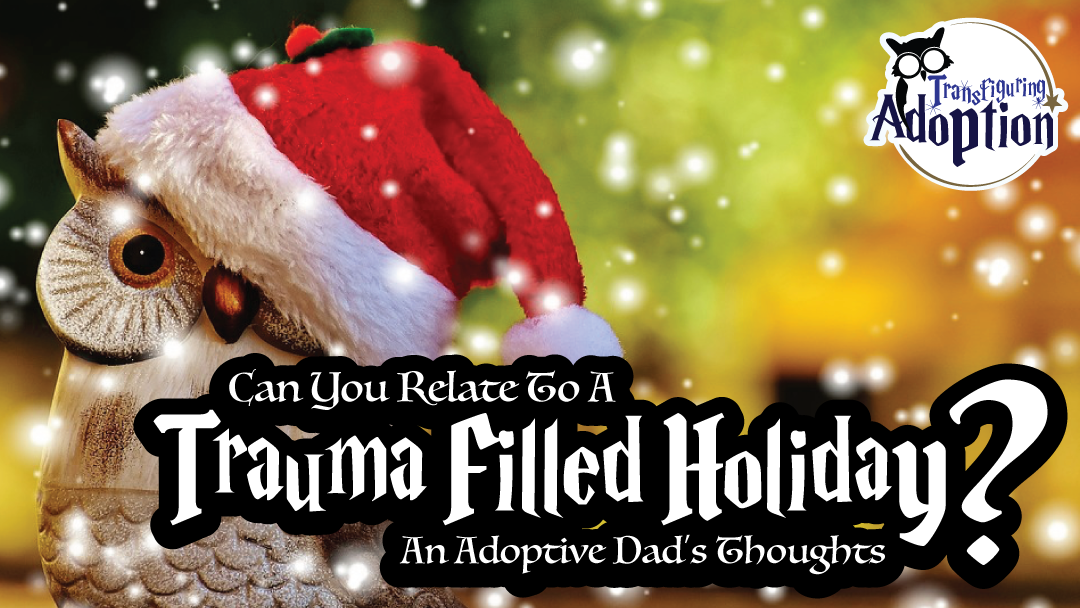Guest Blog by Dr. John DeGarmo
Did you know that many children in foster care have never had a birthday celebrated in their name? Are you aware that hundreds of thousands of foster children have never had a present to open on Christmas day? This reality, alone, makes me sad. To think that a child is sitting in a home, right now, on his birthday, and there is no one who will sing “Happy Birthday” to him, no cake or ice cream party, no presents with his name on it, no one to make him feel special. No presents under a Christmas tree, or during a family holiday for him. No one to help make a holiday a special event for him.
Meet Andrew
I witnessed something like this recently. We had a child in our home, Andrew, who had come from a house of horrors, along with his two other siblings. His mother was a meth addict, his father was never in the picture, and his house had no electricity, no food, no water, no plumbing, no heat, nor no air. Along with this, the entire floor of the house was covered in both dog and human feces. The child was seldom in school, and had never truly been raised by his mother, as she was too often focusing her concerns upon her drug addiction. Andrew had a number of emotional challenges, including suffering from Reactive Attachment Disorder (RAD), a condition in which children have great difficulty in forming healthy attachments with others. Far too many children in foster care are diagnosed with RAD, and they struggle mightily with connecting with others on any type of social level. Children who are diagnosed with R.A.D. also find it very difficult to keep their emotions in control. Andrew was often full of rage, and was openly defiant at times, while at other times was considerate and well mannered. To be sure, we never really knew when Andrew might explode into rage, as many things would trigger his unleashed fury and anger.
“An eleven year old boy did not know how to open a present. Can you imagine?”
Four months after his arrival into our home, Christmas rolled over on the calendar. As we do for everybody in our house, we celebrated this Christmas in a large way. First, my wife and I woke all of the children in our home singing “Merry Christmas”. I was a little surprised when his older brother and sister told me that they didn’t know the words to a classic and familiar song. Later that morning, when a present with his name was placed in front of him, wrapped in colorful and festive wrapping paper, our foster son simply stared down at it, then to us, and then back to the present. “What is it?” he asked. With smiles on their faces, and laughter in their voices, our own children then encouraged him to open it up. Looking down at it with a confused look, Andrew simply sat in his bed, turning the present over and over in his hands. Turning to my wife, the 11 year old said, “I don’t know how.”
He didn’t know how. An eleven year old boy did not know how to open a present. Can you imagine? He had never had a present to open before. Not on Christmas, not on his birthday, not on a holiday. No one to tell him how special he was on the day he was born, and how much he mattered on the day that was supposed to be celebrated in his honor.
How You Can Help
So, how can you help this difficult time be more joyous? To begin with, foster parents can best help their foster child by spending some time and talking about the holiday. Let the foster child know how your family celebrates the holiday, what traditions your family celebrate, and include the child in it. Ask your foster child about some of the traditions that his family had, and try to include some of them into your own home during the holiday. This will help him not only feel more comfortable in your own home during this time, but also remind him that he is important, and that his birth family is important, as well. It is important to keep in mind that many foster children may come from a home where they did not celebrate a particular season, nor have any traditions in their own home. What might be common in your own home may be completely new and even strange to your foster child. This often includes religious meanings for the holiday you celebrate. Again, take time to discuss the meaning about your beliefs to your foster child beforehand.
“It is important to keep in mind that many foster children may come from a home where they did not celebrate a particular season, nor have any traditions in their own home.”
More than likely, your foster child will have feelings of sadness and grief, as he is separated from his own family during this time of family celebration. After all, he is separated from his family during a time that is supposed to be centered AROUND family. However much you provide for him, however much love you give to him, you are still not his family. Like so many children in foster care, they want to go home, to live with their family members, despite the abuse and trauma they may have suffered from them, and despite all that you can and do offer and provide for him. Therefore, this time of holiday joy is especially difficult.
You can help him by allowing him to talk about his feelings during the holidays. Ask him how he is doing, and recognize that he may not be happy, nor enjoy this special time. Look for signs of depression, sadness, and other emotions related to these. Allow him space to privately grieve, if he needs to, and be prepared if he reverts back to some behavior difficulties he had when he first arrived into your home. After all, he is trying to cope with not being with his own family during this time when families get together. These feelings and these actions are normal, and should be expected. You can also help your foster child by sending some cards and/or small gifts and presents to their own parents and birth family members. A card or small gift to his family members can provide hope and healing for both child and parent, and help spread some of the holiday cheer that is supposed to be shared with all.
I Need Your Help
Now, I need your help in helping other children in need. Please join me. Together we can provide a home for more children. I need your help. They need your help. It is Never Too Late for a happy childhood. It is never too late for a child to start healing and find love. Help me protect more children, and provide a loving place where they can find healing HERE.
Dr. John DeGarmo has been a foster parent for 13 years, now, and he and his wife have had over 40 children come through their home. He is a popular speaker and trainer on many topics about the foster care system, and travels around the nation delivering passionate, dynamic, energetic, and informative presentations. Dr. DeGarmo is the author of several books, including the brand new book Helping Foster Children in School: A Guide for Foster Parents, Social Workers, and Teachers, and the foster care children’s book A Different Home: A New Foster Child’s Story. Dr. DeGarmo is the host of the weekly radio program Parent Factors with Dr. John. He also writes for a number of publications and newsletters, both here in the United States, and overseas. He can be contacted at drjohndegarmo@gmail.com, through his Facebook page, Dr. John DeGarmo, or at his website, http://drjohndegarmofostercare.weebly.com.




